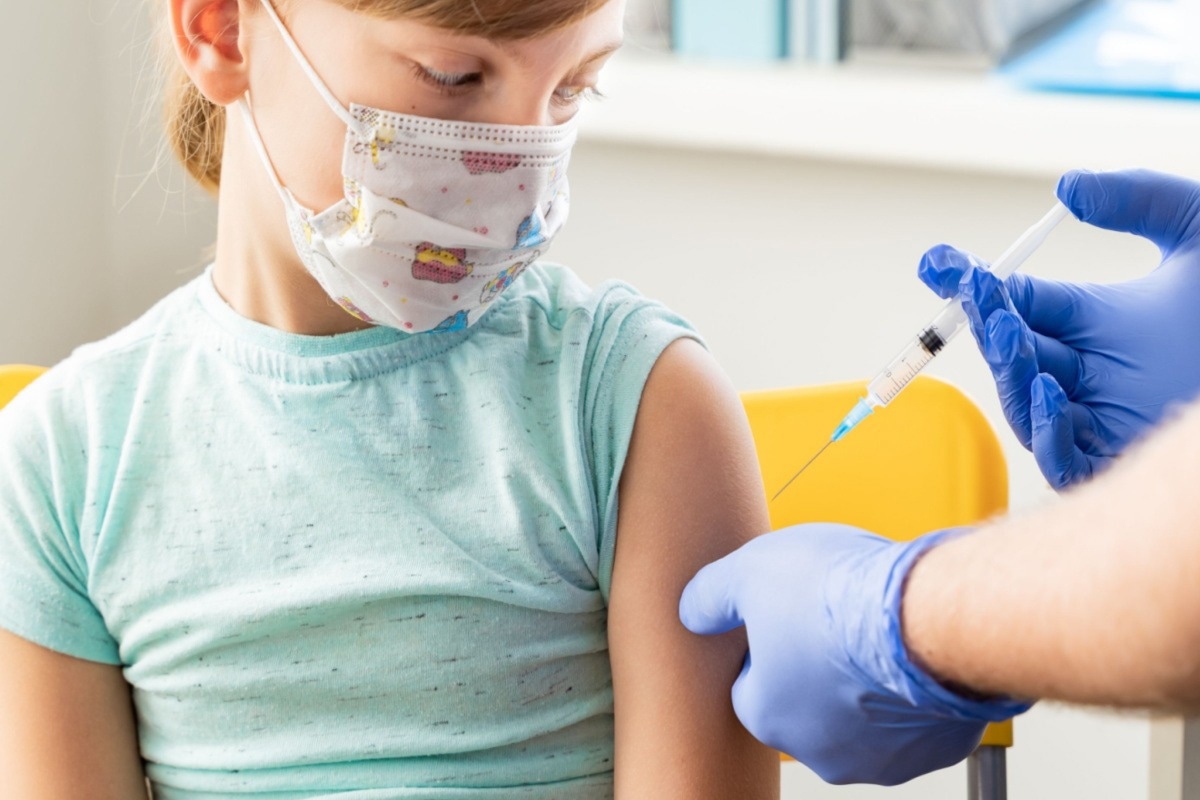They used a multivariable logistic regression model to describe the vaccine effectiveness (VE) of BNT162b2 against Omicron by dosing interval and from the time since vaccination up to 90 days following vaccination.
 Study: Vaccine Effectiveness of BNT162b2 Against Omicron in Children Aged 5-11 Years: A Test-Negative Design. Image Credit: Ira Lichi/Shutterstock
Study: Vaccine Effectiveness of BNT162b2 Against Omicron in Children Aged 5-11 Years: A Test-Negative Design. Image Credit: Ira Lichi/Shutterstock

 *Important notice: Preprints with The Lancet publishes preliminary scientific reports that are not peer-reviewed and, therefore, should not be regarded as conclusive, guide clinical practice/health-related behavior, or treated as established information.
*Important notice: Preprints with The Lancet publishes preliminary scientific reports that are not peer-reviewed and, therefore, should not be regarded as conclusive, guide clinical practice/health-related behavior, or treated as established information.
Background
Only a few studies have evaluated the effectiveness of the messenger ribonucleic acid (mRNA)-based SARS-CoV-2 vaccines, including BNT162b2, in preventing Omicron infections in five to 11-year-old children. Published studies had estimated 31% VE against Omicron infection for this age group in the United States (US) and 68 to 74% against hospitalization.
The National Advisory Committee on Immunization (NACI) in Canada recommends a two-dose series of 10mcg BNT162b2 for children aged five to 11 years, with a dosing interval of over eight weeks. However, vaccination at a shorter dosing interval was allowed upon a prior request of parents. Data on VE against Omicron in children aged five to 11 years is growing but remains scarce beyond two months after vaccination. Also, the VE of an eight-week dosing interval compared to shorter intervals in children is unknown.
Study design
In the present study, researchers used a test-negative design to estimate the VE of the BNT162b2 vaccine in preventing symptomatic infection and severe outcomes due to Omicron infection in the age group of five to 11 years between January 2 and May 28, 2022.
They used the first incidence of reverse transcriptase-polymerase-chain-reaction (RT-PCR) confirmed Omicron infection for analyses. Further, they identified severe cases from the Public Health Case and Contact Management Solution (CCM) by the date of COVID-19-related hospitalization and death up to May 28, 2022. They obtained all COVID-19 vaccination data from Canada's centralized information system - COVaxON. The team used multivariable logistic regression models to compute adjusted odds ratios (aOR) in vaccinees and controls.
Further, they estimated the VE of one and two doses of the BNT162b2 vaccination and defined VE as (one minus the OR) X 100%. They calculated VE at ≥14 days following the first dose and ≥7 days after the second dose. The team used standardized differences to compare test subjects with controls and vaccinated and unvaccinated children, with values >0.10 considered clinically relevant.
Study findings
The final study sample comprised 5,870 symptomatic COVID-19 positive cases and 7,050 test-negative controls. Compared to controls, test subjects were more likely older, resided in high-density areas, and were less likely to receive a vaccination. Among vaccinated children, the mean dosing interval was longer for test-negative controls vs. test subjects (50·9 days vs. 46·3 days).
VE against symptomatic infection was 13% and 54% ≥14 days after a first dose and ≥7 days after a second dose, respectively. VE was substantially higher for children with longer dosing intervals (63% for a dosing interval of ≥56 days vs. 17% and 43% for a dosing interval of 15-27 days and 28-41 days, respectively). Notably, VE for children with longer dosing intervals was also higher for some time-since-second-dose periods. Thus, the authors noted a VE of 61% for children with a dosing interval of ≥56 days.
As expected, the vaccinated children were less likely to develop severe outcomes due to breakthrough Omicron infections. VE against severe outcomes due to Omicron was 81% ≥7 days after a second dose. It declined from 94% to 74% within seven to 29 days and ≥60 days after the second vaccine dose.
Conclusions
In the current study, the VE of two doses of the BNT162b2 vaccine against symptomatic Omicron infections was 67% among five to 11-year-old children. However, VE was lower (23%) after one dose of BNT162b2. Against severe outcomes, VE was initially high after a second dose (94%) but declined over time. VE also waned over time within each dosing interval group, with a slower waning occurring only ≥90 days after the second dose with the ≥56 days interval.
Overall, BNT162b2 conferred adequate protection against Omicron infection and severe illness among five to 11-year-old children. Further studies should evaluate the duration of the observed protection, especially with the emergence of more Omicron sub-variants.

 *Important notice: Preprints with The Lancet publishes preliminary scientific reports that are not peer-reviewed and, therefore, should not be regarded as conclusive, guide clinical practice/health-related behavior, or treated as established information.
*Important notice: Preprints with The Lancet publishes preliminary scientific reports that are not peer-reviewed and, therefore, should not be regarded as conclusive, guide clinical practice/health-related behavior, or treated as established information.
Journal reference:
- Preliminary scientific report.
Piché-Renaud, Pierre-Philippe and Swayze, Sarah and Buchan, Sarah and Wilson, Sarah and Austin, Peter C. and Morris, Shaun K. and Nasreen, Sharifa and Schwartz, Kevin L. and Tadrous, Mina and Thampi, Nisha and Wilson, Kumanan and Kwong, Jeffrey C. and Group, Canadian Immunization Research Network (CIRN) Provincial Collaborative Network (PCN) Investigators. (2022). Vaccine Effectiveness of BNT162b2 Against Omicron in Children Aged 5-11 Years: A Test-Negative Design. Preprints with The Lancet. doi: https://dx.doi.org/10.2139/ssrn.4176388 https://ssrn.com/abstract=4176388